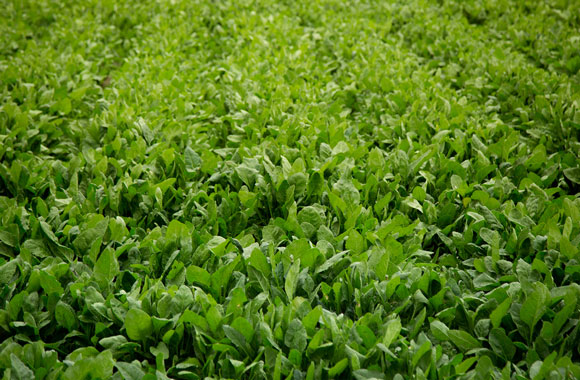Mar 3, 2021How Adjuvants Optimize Disease and Insect Control in Vegetable Fields
{Sponsored} Although applying the right pesticides at the right time plays an important role within an insect control program for vegetable growers, what some may not know is how adjuvants play a critical role to optimize those pesticides and provide a greater return each harvest.
“The biggest misconception about adjuvants is that they are an unnecessary product that add only cost, not value, to an insect control program,” said Dr. Lorianne Fought, plant pathologist and crop research manager at Wilbur-Ellis Agribusiness. “Adjuvants add value to the grower’s pest control program.”
One of the main benefits of an adjuvant is its ability to increase the level of performance of a pesticide once it reaches its intended target. Although pesticides that come straight from the manufacturer typically have emulsifiers, surfactants and oils added to them, they do not have the levels necessary commercially to have the same effects as an application would by adding additional adjuvants to them. The stabilizers and emulsifiers in the concentrated jug are for product shelf-life and serve a different function than the adjuvants used by growers to improve the performance of the pesticide in the field.
What to consider when selecting an adjuvant
There are more than 20 different types of adjuvants on the market that are designed to perform certain functions involving the mixing and application of pesticides, such as spreading, sticking, buffering, emulsifying, wetting and dispersing. Using an adjuvant can increase pesticide effectiveness and reduce spray application problems as a result.1
According to Dr. Fought, before selecting an adjuvant, it is key to know the history of the field, the crop it will be used on, what pests are present and where on the plant the pest is located.
“Adjuvants function to improve the performance of a pesticide when it is placed where it is needed for pest control on the plant or in the soil,” said Dr. Fought. “There are many different types of adjuvants so it is important to work with your crop advisor to find one that will meet your crops needs.”
For example, if a grower is fighting a pest that feeds on the surface of a plant, like mites, the preferred adjuvant type to include with the pesticide is one with spreading characteristics that will increase the performance of the pesticide on a leafy surface. A nonionic surfactant can provide superior wetting and spreading of the spray material across the leaf surface, along with quicker absorption into the plant tissue, leading to better control of the targeted pest.
An adjuvant’s role in resistance management
“Adjuvants are a critical part of resistance management, because of their role in getting the active ingredient to the pest,” said Dr. Fought. “Some adjuvants can increase the coverage of a pesticide solution on the surface of a plant, thus improving the likelihood of the pesticide reaching pests present in nooks and crannies; while others can increase the penetration of a pesticide into a leaf surface, thus improving the likelihood of the pesticide reaching aphids feeding on the underside of the leaves.”
If a pest is dead, it’s not going to pass along genetic mutations to the next generation that could lead to the development of a large pest population resistant to the pesticide that was used. Continued use of the same pesticide mode of action can trigger wide-spread populations of the pest resistant to multiple pesticides with the same mode of action.
Dr. Fought explained how resistance development among some fungi, such as grape powdery mildew, can be a costly challenge for growers because the fungi can have lifecycles that are five to seven days long and can make thousands to millions of progeny within that time. This also leaves a lot of opportunity for genetic mutations that allow progeny to become resistant.
“Whether you’re trying to grow a clean crop because Japan demands zero injury before accepting it or you’re interested in stewarding land so that you don’t have to retreat and use more chemicals, adjuvants can help aid in ensuring that the active ingredient in a pesticide does its job and stays on target,” added Dr. Fought.
To ensure the appropriate adjuvant for your disease and insect control program, Dr. Fought recommends working closely with a crop adviser. Contact your local Wilbur-Ellis representative for more information.
© 2021 Wilbur-Ellis
Reference:
1 Hock, W. (2021, January 21). Spray adjuvants. Retrieved February 15, 2021, from https://extension.psu.edu/spray-adjuvants















